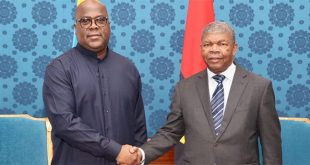
`Hakuna mchezo’ in trouble
Such accusations of continuing poor performance by the government are in sharp contrast to President Yoweri Museveni’s pledge that there would be `no playing around’ in this new term following his re-election for another term which pushed his grip on power past 30 years. The President has said this would be a term of no-games or `Hakuna mchezo’ in Swahili.
Events on the ground seem to mock the President’s pledge. Observers have pointed at the Uganda economy which appears to be in free-fall with stalled projects in the oil and infrastructure sectors, poor budget absorption, the blocking of new World Bank lending, moribund interest rates, and declining social service delivery.
So Kadaga’s decision to call for another recess opened another round of debate about how serious the 10th Parliament is and whether they are likely to do better than their predecessors.
Critics like Job Kijja, the Coordinator of Uganda NGO Forum, say parliament’s poor performance should not occur because “the leadership of Parliament did not change”.
“They are well aware of the backlog they left behind,” and instead of going on recess owing to lack of government business, they should be handling Bills that were not disposed of in the 9th parliament.
“The government has been sluggish even previously but this does not mean that they should go to sleep,” he says.
The furor appears to have put the government in damage-control mode.
When The Independent asked Ruth Nankabirwa, the government Chief whip why the Cabinet seems too lazy to generate business leading Parliament to become redundant, she put a spin on it. She said the Speaker “might have been misunderstood”.
“It’s not correct to say that the government has failed to generate business,” she said, “If we had no business, the order paper would not be showing business to follow.”
She said in any case according to the Parliamentary calendar, the MPs were scheduled to go on recess on Oct. 06 anyway.
Reagan Okumu, the Chairperson of the Local Government Accounts Committee and Aswa County MP and member of the Business Committee of Parliament which draws up the agenda of parliament described Kadaga’s decision as administrative.
“This is why the Speaker decided to give the committees the whole week so that even if the government has no business, Parliament is able to proceed with its own business on the floor of Parliament,” he said.
Okumu who has been in Parliament for over 20 years told The Independent on Oct.03 that Cabinet’s lack of business is difficult to explain because President Museveni outlined a raft of government business for the year in his State of the Nation address in May. Museveni said up to 29 Bills would be brought to the House as a priority but Okumu said the Cabinet has not brought to Parliament any Bills.
He, however, defended Parliament’s going on recess saying the public is angry because it does not understand that the core work in Parliament is done within committees.
“What is taken on the floor of Parliament is basically food cooked to serve,” he said, “It is not sitting in the plenary that is important; it is the committee reports which are important.
“But if Parliament is expected to continuously sit, you cannot do all this work,” he said.
Whatever the interpretation of the Speaker’s decision, Sabiiti Makara, a professor of political science at Makerere University told The Independent on Oct.02 that Kadaga is right to suspend Parliament since much of the business comes from Cabinet.
“In all countries, the bulk of business in Parliament comes from Cabinet,” Prof Makara said, before adding that he found the whole state of affairs strange considering Uganda has a very big Cabinet.
“We have such a large Cabinet that does not serve any useful purpose,” Makara said.
“The ministers are only there thinking about President Museveni and that is really unfortunate. If it were a smaller Cabinet, the ministers would worker a little harder.”
“We cannot say the ministers are all new and probably they are getting acquainted to their new departments. Half of them were in the previous Cabinet, why are they not pushing for the business.”
Makara wondered what the ministers could be doing considering this is one of their main jobs. He also wondered why Parliament would lack business to debate since there was business left behind by the 9th Parliament. It is incumbent upon the current ministers to pursue the business left behind by the previous Parliament.
Norbert Mao, Chairman General of the Democratic Party and former high ranking parliamentarian was unimpressed by the MPs’ lack of performance.
“They are always giving themselves two minutes to debate because they say time is not enough for them but now it appears like they have a lot of time but they are deciding to go home.”
Mao said by the MPs going home, Parliament was giving itself a vote of no confidence that they cannot work independently of the executive.
He told The Independent that Speaker Kadaga makes it look like Parliament entirely depends on the business government generates. He said it should work differently.
“Parliament has both backbenchers and front benchers – the ministers who are the minority,” he said, “There are many reports in Parliament that have never been discussed.”
According to the Parliaments Rules of Procedure, government’s ministers are required to come to Parliament regularly to respond to issues raised on the floor of Parliament.
 The Independent Uganda: You get the Truth we Pay the Price
The Independent Uganda: You get the Truth we Pay the Price


